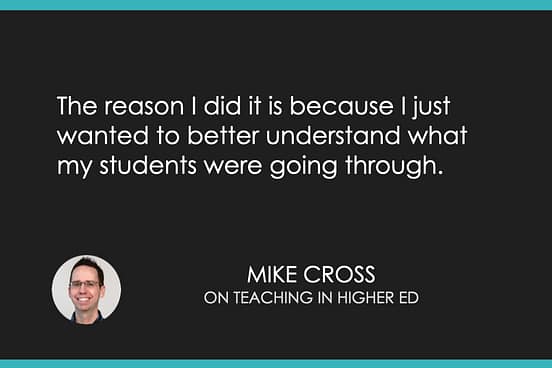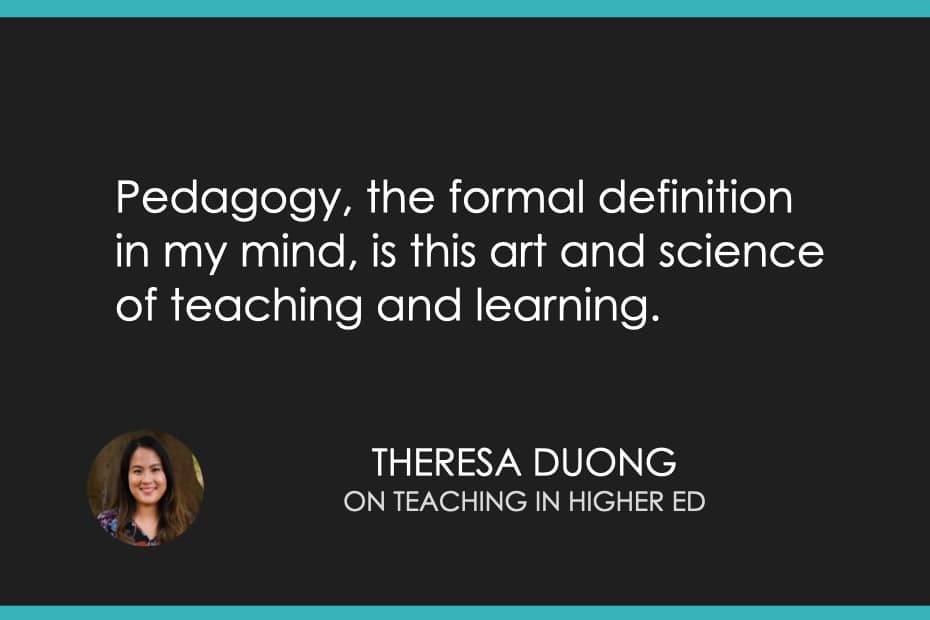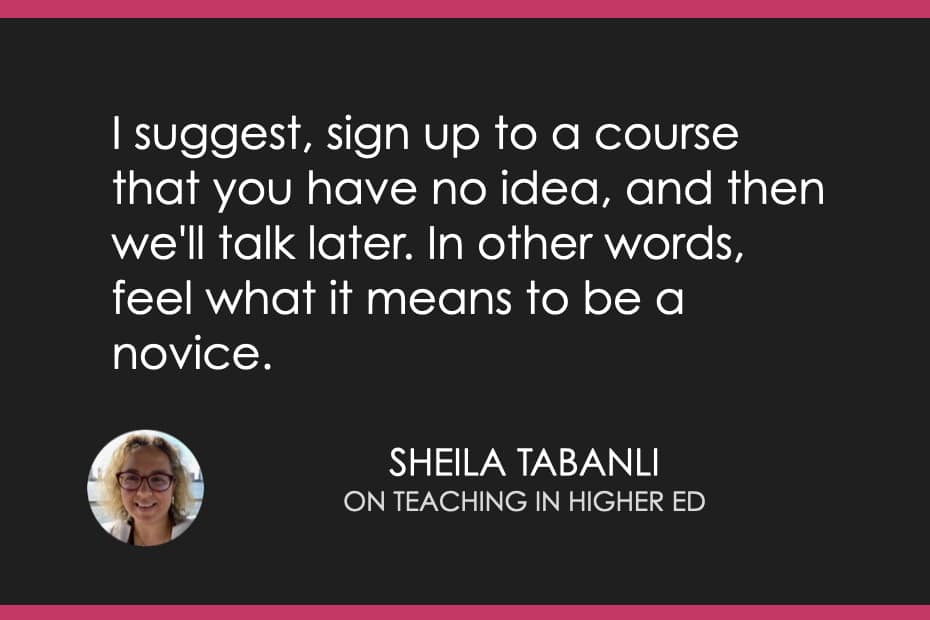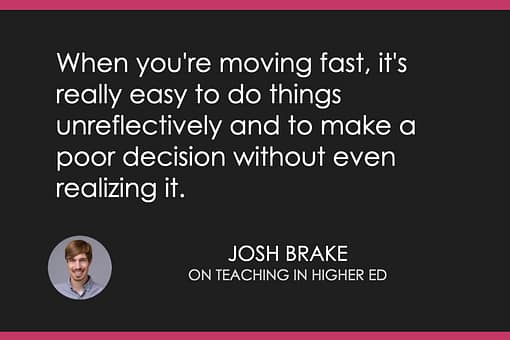Danny Mann shares about fostering peace, joy, and community in teaching and leading on episode 611 of the Teaching in Higher Ed podcast.
Quotes from the episode
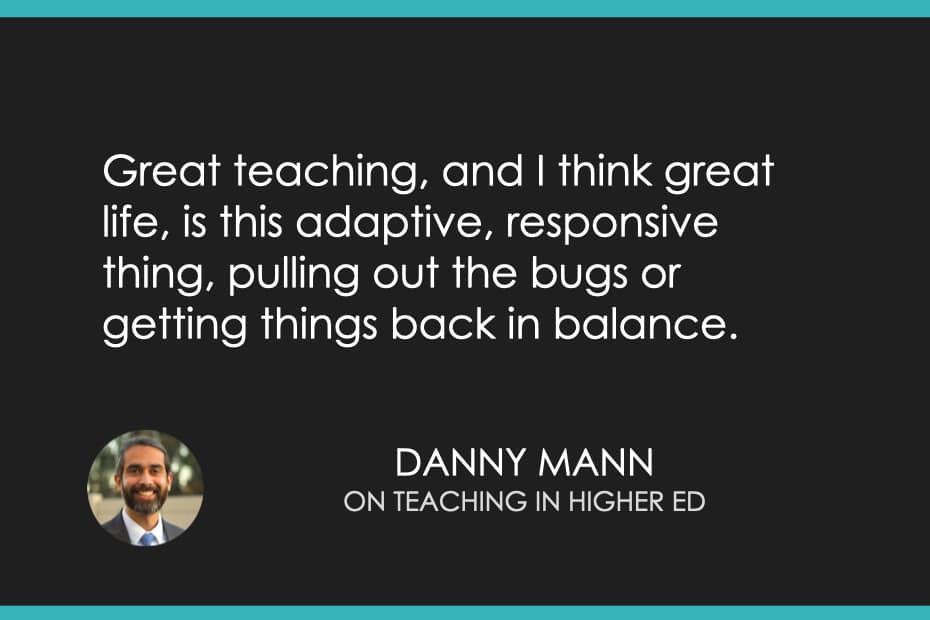
Great teaching, and I think great life, is this adaptive, responsive thing, pulling out the bugs or getting things back in balance.
-Danny Mann
Peace and joy are really interrelated, and I gravitated a lot towards these, as I spent time studying and practicing mindfulness practices.
-Danny Mann
If you discover your why, you could basically feel much more energized and joyful about what you do, if you align your life with that.
-Danny Mann
Giving students space to speak and share ups and downs. So the ironic leading by listening.
-Danny Mann
